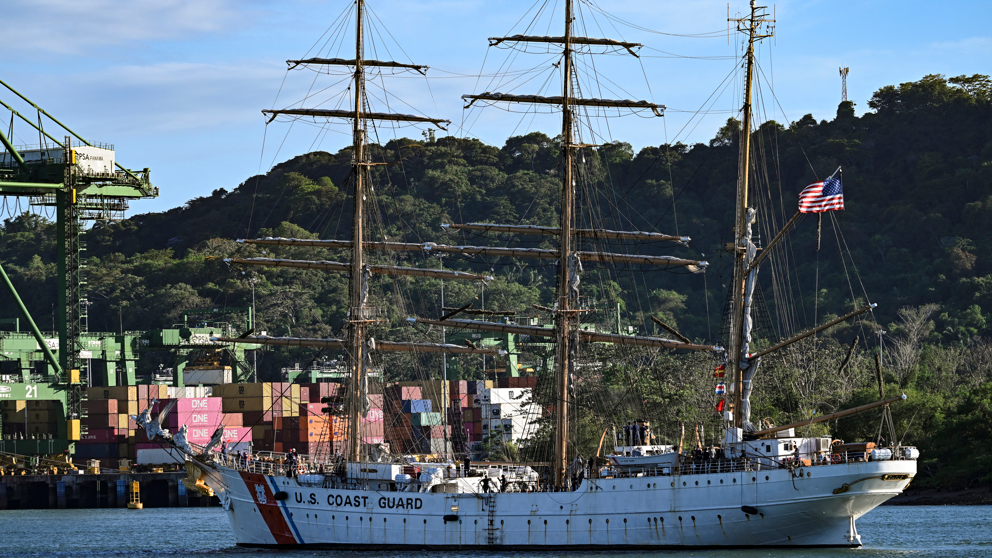
The U.S. Coast Guard training vessel Eagle is seen passing through the Panama Canal en route to the Pacific Ocean in Panama City on April 23, 2025. (AFP)
Washington, April 28 (RHC)-- U.S. President Donald Trump says American military and commercial vessels should be allowed to travel free of charge through the Panama and Suez canals.
Trump wrote in a post on Truth Social late Saturday that he was tasking his secretary of state, Marco Rubio, with making progress “immediately.”
"American Ships, both Military and Commercial, should be allowed to travel, free of charge, through the Panama and Suez Canals. Trump claimed that the two strategic routes for global trade and military operations would “not exist” without the United States.
Panama's President José Raúl Mulino wrote on X on Saturday, without naming Trump, that the "transits and costs of all vessels through our Canal" are regulated by the Panama Canal Authority (ACP)— an autonomous governing body. "There is no agreement to the contrary," Mulino said.
Since taking office in January, Trump has repeatedly expressed his desire for the U.S. to acquire the Panama Canal. Before returning to the White House, he even refused to rule out using economic pressure or military force to regain control over the canal.
U.S. Defense Secretary Pete Hegseth said during a visit to Panama earlier this month that he was seeking an agreement under which U.S. warships could pass through the canal “first, and free.” He also floated the idea of U.S. troops returning to Panama to “secure” its strategically vital canal.
The strategic waterway crosses the narrowest part of the isthmus between North and South America, allowing ships to move more quickly between the Atlantic and Pacific oceans. It carries about 40% of the U.S. container traffic each year.
The canal was managed by the US for decades, but under a treaty signed by the late US president Jimmy Carter in 1977, it was handed over to the Panamanians on December 31, 1999. Trump described Carter's decision to hand the Canal back to Panama as "a big mistake.”

